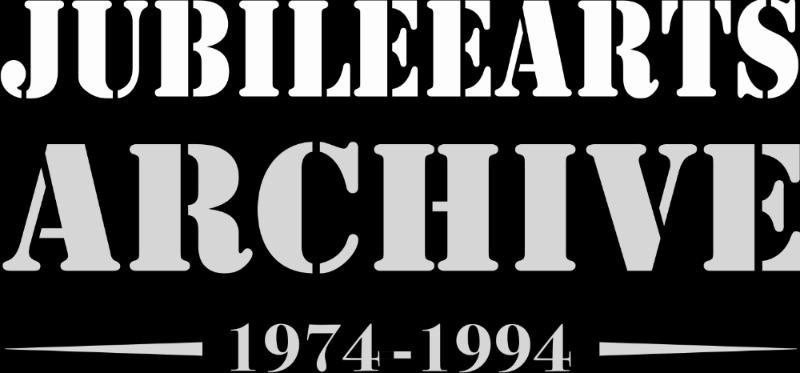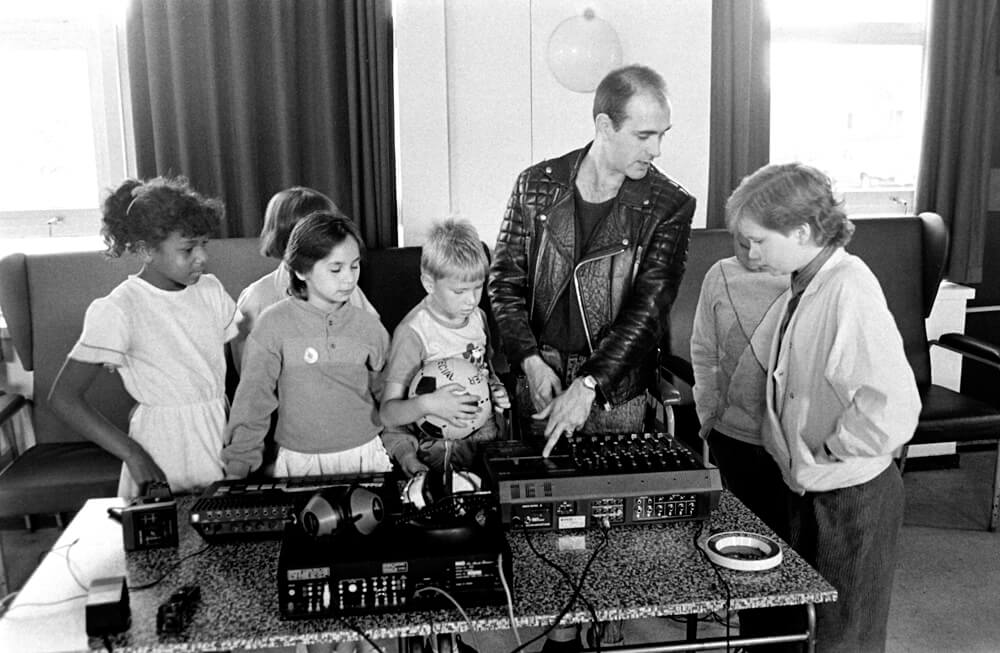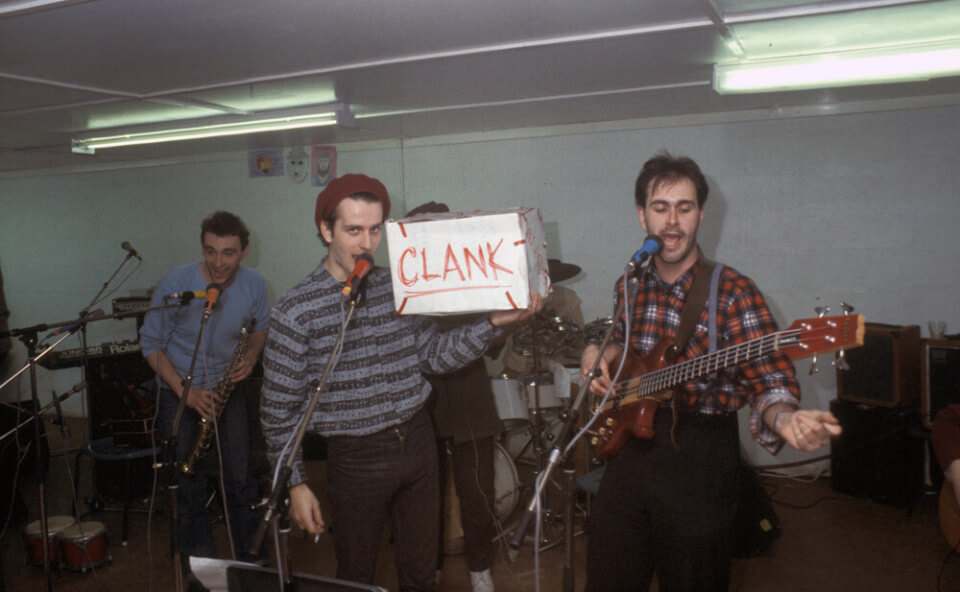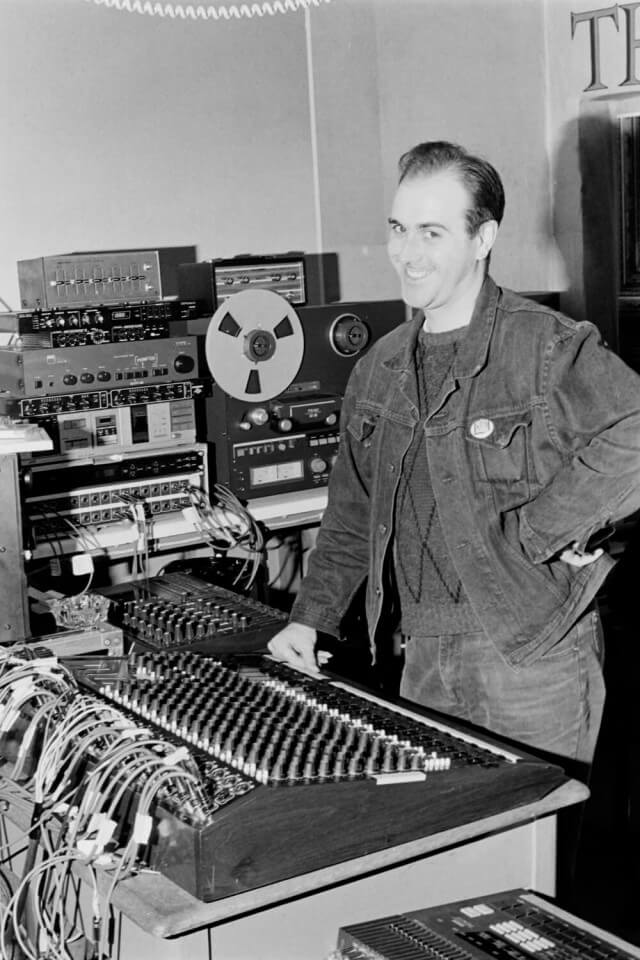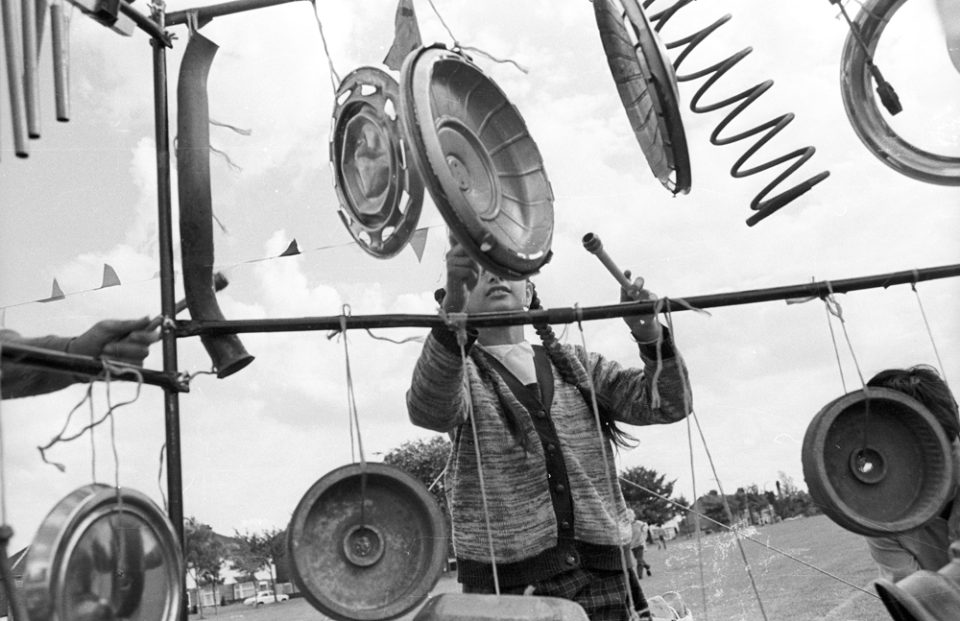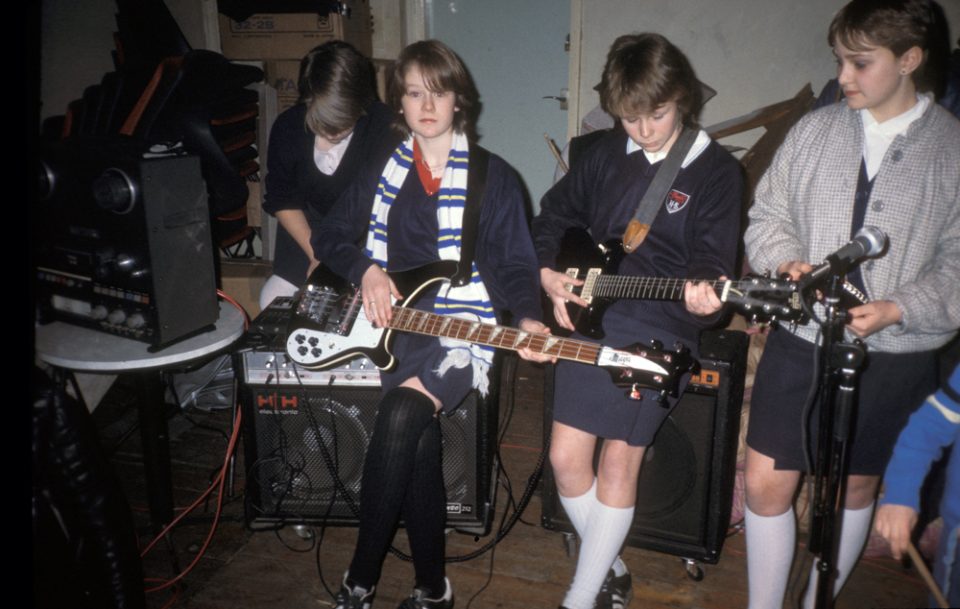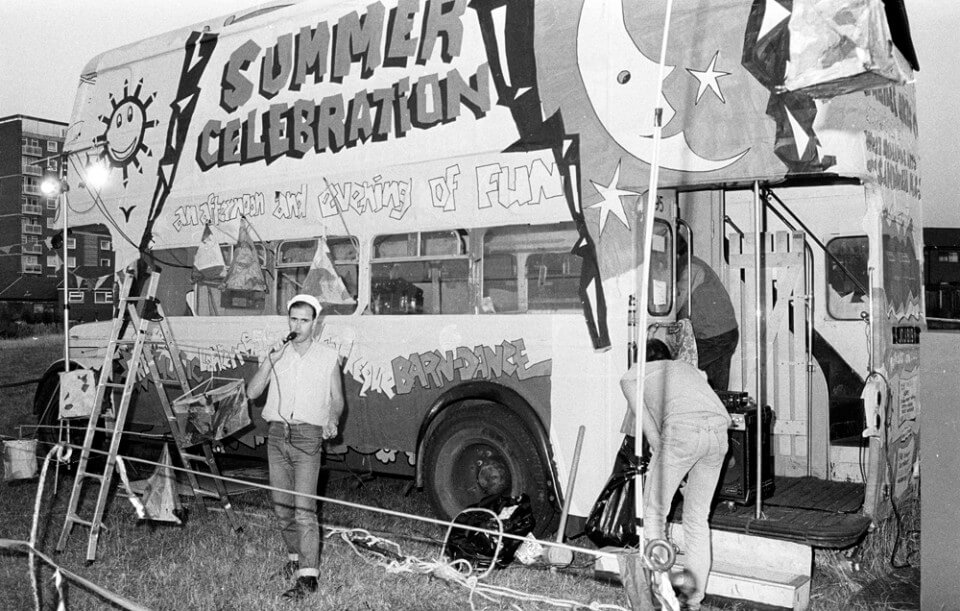This image shows Chris Jones running a recording session for Hateley Heath Community Association. Note the ashtray on the tabletop, obviously an essential ingredient of any music workshop. As was his ubiquitous leather jacket. Jubilee had first worked with residents on a double screen projection tape side show with audio, celebrating the 30th anniversary of Kent Close Primary School, collaging and layering family snapshots, archive and contemporary photographs of pupils and activity, the 30 minute sequence synchronised by Gary Stewart by programming an Atari controller. Chris later ran some recording sessions with these young people in terms of vocal training and a cappella singing for a performance at both a summer festival event and Christmas event.
Chris came from South Wales to work in the borough with Platypus Theatre group who, in 1982, collaborated with Jubilee to celebrate the opening of a new community centre at Windmill Lane, Smethwick. As a ‘jobbing musician’ throughout the 1980s he also played in several bands, one even named ‘The Peaky Blinders’, and became involved with Smethwick Music Workshop, the 1984 May Day Fireshow band and other fireshow productions in nearby Moxley and further afield Cartwheel Arts in Rochdale.
As a music worker, he first joined Jubilee to help set up a recording studio at 84, High Street, West Bromwich, premises the group moved to in 1985, working with 16 track reel to reel tape, a Tascam portastudio, along with the inclusion of various MIDI devices as they became available. He then established resources with the new Arts Development section of the council, which offered training and equipment to support music events in the community. As well as promoting a series of World Music events at a variety of venues such as The Hen & Chickens in Oldbury, now housing the Wing Wah Chinese restaurant, and ‘Soundstage’ at the annual Sandwell Show in Dartmouth Park to profile local talent, he ran regular youth music workshops as part of the ongoing Jubilee programme. As a core member of the summer Community Celebrations team (1984-88), he scoured local scrapyards with theatre designer Cath March to create junk percussion, somewhat slightly inspired by groups like Test Department, who reused found industrial items; these provided the instruments with which to create improvised soundtracks for evening shadow puppet shows, while he also recruited and organised the barn dance musicians. He became increasingly interested in utilising new technology to work with less able individuals, going on to work with a number of charities in the 1990s who specialised in work with disability groups and the elderly. Sadly, he is now longer with us, passing away at a relatively young age.
